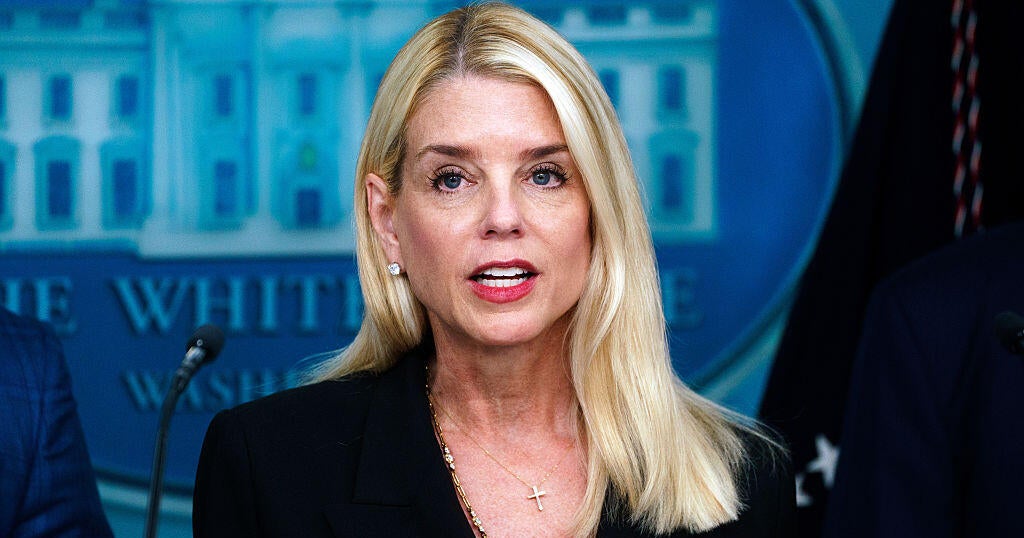In a dramatic overturn of existing policies, Attorney General Pam Bondi has nullified local guidelines that previously restricted the cooperative endeavors between Washington, D.C., police and federal immigration authorities, including agents from Immigration and Customs Enforcement (ICE) and other immigration-related federal agencies. This bold move signifies a complete reversal of the sanctuary policies previously upheld in the nation’s capital, indicating a stark policy shift that aligns local law enforcement efforts with more stringent federal directives on immigration enforcement under President Donald Trump’s administration.
President Trump has intensified his focus on law and order in the District of Columbia, citing growing concerns regarding crime and disorder as the primary drivers behind his administration’s aggressive approach. His strategy includes the high-profile mobilization of federal forces, including the National Guard and numerous agents from key federal agencies such as the Drug Enforcement Administration (DEA), Customs and Border Protection, ICE, and the Federal Bureau of Investigation. These forces have been tasked with significantly increasing their presence and patrols within selected areas of the city.
Central to the president’s campaign to restore order is an executive order issued earlier this week, which places the Metropolitan Police Department under temporary federal control. By invoking emergency powers valid for a 30-day period, this directive significantly broadens the federal government’s scope of intervention in the city’s local law enforcement activities.
In line with the federal takeover, Attorney General Bondi, who has been delegated the authority to oversee federal requests directed at the local police department, issued a directive that appoints Terry Cole, current head of the DEA, as the emergency police chief of Washington. Bondi justified her sweeping reversals of several local police policies by citing the emergency powers granted by President Trump’s declaration.
Appearing on Fox News, Bondi steadfastly declared, “D.C. will not remain a sanctuary city, actively shielding criminal aliens.” This statement was followed by her rescinding a guidance issued by D.C. Police Chief Pamela Smith earlier in the day. Smith’s guidance, which had been a slight relaxation allowing local police to transport ICE detainees and share immigration status information during traffic stops, still restricted broader cooperation with federal immigration enforcement.
Further, Bondi abolished protocols that had prevented D.C. police officers from querying databases to ascertain someone’s immigration status in situations where there was no related criminal warrant. She also reversed the policy that forbade local officers from detaining individuals based solely on administrative immigration warrants from ICE, which are not signed by judges. The previous policy mandated that a clear criminal nexus must be present before any arrest, effectively preventing arrests based solely on suspected civil immigration law violations.
Another significant change made by Bondi involved the local policy that barred the transfer of noncitizen detainees to ICE custody, based on federal detainer requests, unless accompanied by a judicial criminal warrant. This policy had been a cornerstone of the sanctuary city status that limited local involvement in national immigration enforcement efforts.
Later in the day, responding to Bondi’s sweeping directives, D.C. Mayor Muriel Bowser featured a letter from District of Columbia Attorney General Brian Schwalb on her social media. Schwalb’s message contended that Bondi’s directives lacked legal authority under federal law. “It is my opinion that the Bondi Order is unlawful, and that you are not legally obligated to follow it,” wrote Schwalb, directing this message to Police Chief Pamela Smith. He emphatically instructed local officers to disregard the federal directive and continue adhering to the guidelines previously set by local authorities, rather than those imposed by federal figures not appointed by the Mayor.
In the broader context of the Trump administration’s immigration policy, this development aligns with its overarching strategy to clamp down on illegal immigration and penalize sanctuary cities and states that resist full cooperation with federal immigration authorities. These locations have faced threats of legal action and cuts in federal funding as part of the administration’s campaign to enforce national immigration laws more stringently.
The unfolding of these events in Washington, D.C., represents a pivotal moment in the ongoing debate over local versus federal control of law enforcement, especially concerning immigration policies and their enforcement. The tension between maintaining sanctuary policies that protect certain immigrant populations and adhering to federal mandates that seek more stringent enforcement continues to create friction at multiple levels of government. This situation in the capital is a microcosm of the national challenges and debates spurred by contrasting views on immigration policy and enforcement in the United States.









